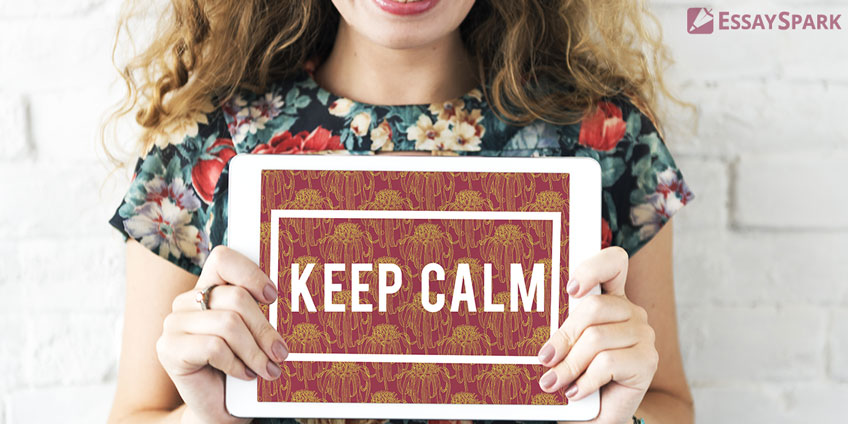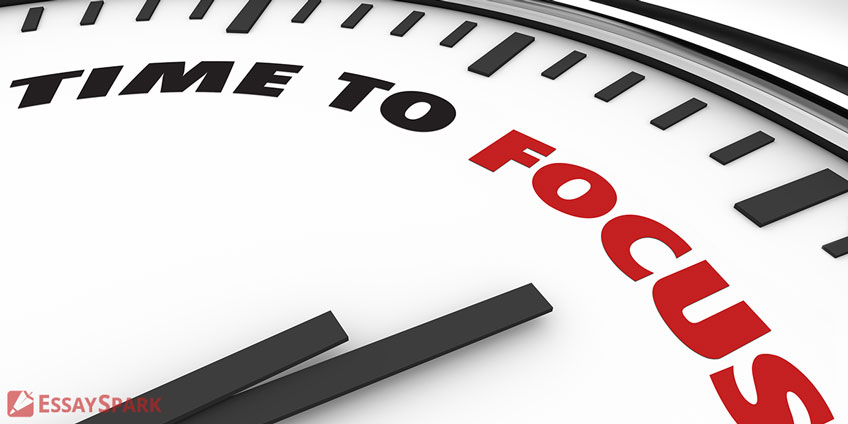
The external manifestations of stress are the fast heartbeat, short breathing, sweaty hands, and difficulty in concentrating. All this is caused by the secretion of hormones at the level of the hypothalamus, an important regulatory area of the brain. But what are the triggers that cause it?
Often, they are negative emotions, for example, fear of failure on the exam, disappointment in your grade, surprise with an unexpected project. A state of deeper anxiety due to the psychic causes or traumas can play a role as well. But the hypothalamus also regulates vital functions. Poor lifestyle, lack of sleep, a lack of physical exercise, nutritional deficiencies, and overexposure to the screens can also promote the secretion of stress hormones. Finally, bad time-management and a tendency to postpone your college work are not a way to avoid stress, but to feed it. Fortunately, just as there are many causes of stress, so there are several ways to relax. At least, you can entrust your essay to a professional writer.
Start a Healthy Lifestyle

In any case, make sure you get enough sleep every day, that is an average of 8-9 hours a day. The last study emphasizes the beneficial effect of sleep on the elimination of toxins secreted during awakening by the intellectual activity. Sleep can also help students be more attentive and improve memorization. It facilitates learning and contributes to your success, which raises positive emotions, boosts motivation and self-confidence and alleviates stress.
Regular exercise is also a great way to relieve stress. The movement gradually takes the direction of the brain, and the networks of neurons mobilized by all our thoughts are loosened. Also, be sure that you eat properly. Take the time to savor and avoid watching your favorite shows while eating. It is really important for the students to organize their meals. Thus, they become more responsible for their health, and this will help them in their college lives.
Students Should Breathe Deeply

The second tip to relieve stress is breathing. Most relaxation exercises include a deep and conscious breathing to reconnect with your body. Take a breath coming in and out the belly that pushes the diaphragm up and down, freeing the lungs and getting as much air in as possible. Three or four deep breathing movements will help you to return to a calmer inner state. Our brain is bombarded with incoming stimulations when it has to emit thoughts, movements, and words. Bringing your body to the sensibility through breathing allows you to reassure it.
Cardiac Coherence Breathing
The secret of a more elaborate respiratory technique is in making consistent heart rate, breathing and blood flow. We think a lot of students have noticed that the slightest emotion tends to accelerate our heart rate, and we can hardly control it by breathing. Cardiac coherence is, therefore, a breathing exercise consisting in inhaling gently for 5 seconds and exhaling for 5 seconds. After 5 minutes of this breathing, the heart rhythm is regularized. But the most surprising is that we see a decrease in the level of cortisol (stress hormone) and an increase in DHEA, the hormone that regenerates cells and stimulation of the immune system.
It is very useful not just to manage your emotions, especially the negative ones, but also to calm down before an exam or public speaking. Like with any relaxation exercise, however, you must exercise in advance to be able to reproduce it when you feel an increase in tension. Do not allow your homework to disturb your normal breathing rhythm. To do this, there is a website essayspark.com – a concentration of academic assistance for all those who need it.
Mindfulness
This is another method that has its roots in Buddhism and has been formalized as a therapy by an American physician, Jon Kabat-Zin. Mindfulness consists of focusing on the present moment, your sensations, breathing, pain, and psychological attitude. This allows you to relieve stress. Since most stresses are emotional in nature, learn to manage your emotions and improve your health, personality, and effectiveness, not only to feel good but also to get what you want more easily. Become a builder of your own life.
What Is the Best Way to Focus on Your Research?

For students, a quality of attention is a good test of indoor climate. If you are stressed, agitated, or scattered, you struggle to keep your focus on the same subject, constantly have distractions, and cannot concentrate effectively. To improve your concentration, you should turn off your phone, close social networks and decide to do one thing at a time. It can make room for you. The practice of some deep breathing movements can also help you work effectively. Then the secret of maintaining a good concentration is breaks, which you should do as soon as the concentration decreases. You can just take your time to breathe deeply, walk a little or move your shoulders to relax your back. Learning to focus on one task at a time is a good way to be more effective and less stressful.